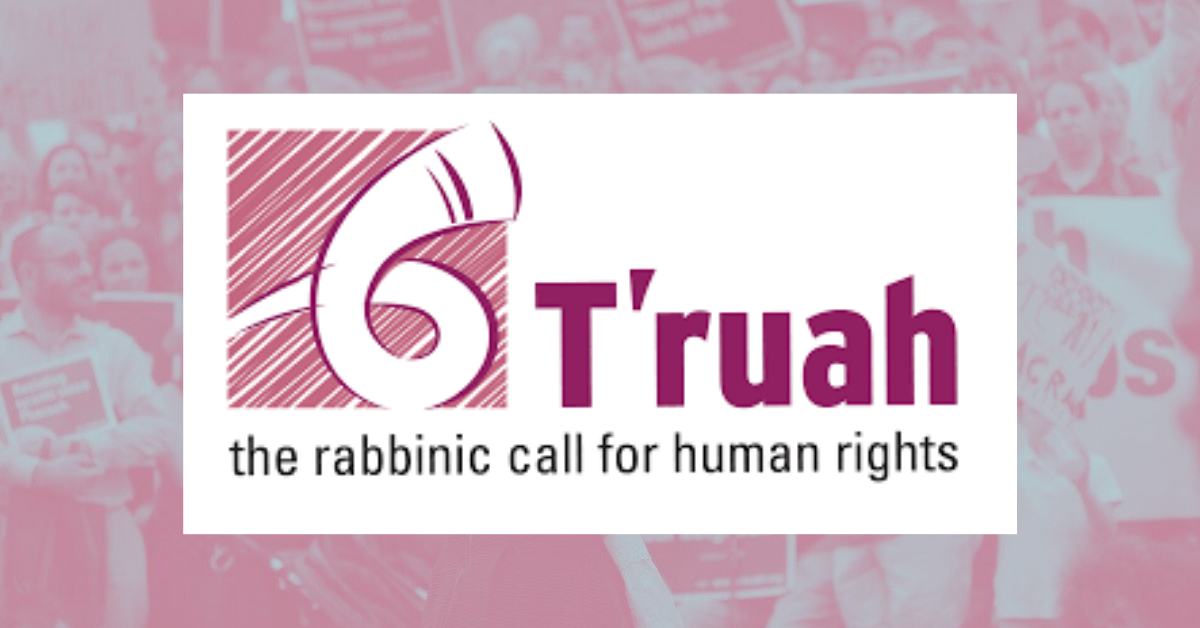NEW YORK – Today, T’ruah, a rabbinic human rights organization that represents over 2,300 rabbis and cantors and their communities, responded to the recent rise of antisemitism and political violence ahead of the midterm election. In recent weeks, Speaker Nancy Pelosi’s husband was attacked at his home, armed partisans have intimidated voters at polling places and ballot dropboxes, elected officials have faced increasing levels of death threats and threats of violence, antisemitic conspiracies have grown on social media, and more. T’ruah called out candidates using violent rhetoric against their political opponents, urging them to take responsibility for the threat this language poses to democracy and the social fabric of America.
Rabbi Jill Jacobs, executive director of T’ruah, released the following statement:
“The midterm election season has taken place in a climate of hostile and racist rhetoric from some political candidates, and we have seen the results: threats of violence, attacks on political leaders, and widespread antisemitism on social media and even major news networks.
“We know our democracy continues to be in a fragile state following the January 6th insurrection at the U.S. Capitol building and with certain politicians continuing to promote the ‘Big Lie.’ In moments of political and economic instability, it is not uncommon for antisemitism and other forms of bigotry to be on the rise. But our leaders can choose whether to use language that inspires Americans to vote or incites them to take up arms.
“The power of speech is a responsibility that must not be abused. Proverbs 18:21 teaches us ‘Death and life are in the power of the tongue.’ When political and social leaders paint their opponents as the ultimate evil and use inflammatory language to encourage their base to take up arms, they must be held partly responsible for the threats of assault and the real-world violence that follows.
“This election is a pivotal moment for our fundamental rights. While this election cycle has been marred by the agenda of white supremacist individuals and movements, we also have the opportunity to work toward the ideals of justice and equality that we strive for as a democracy. T’ruah remains committed to protecting the sacred right to vote and ensuring that all votes are counted and every voice is heard. We encourage other faith and political leaders to do the same.”
Earlier this year, T’ruah released “A Very Brief Guide to Antisemitism,” a resource for both Jews and non-Jews that offers an introduction to antisemitism and addresses common questions and misconceptions. The guide responds to the rise in antisemitic violence against Jews in the United States by providing historical context, language, and tools to understand, recognize and fight back against antisemitism.
T’ruah: The Rabbinic Call for Human Rights mobilizes a network of more than 2,300 rabbis and cantors from all streams of Judaism that, together with the Jewish community, act on the Jewish imperative to respect and advance the human rights of all people. Grounded in Torah and our Jewish historical experience and guided by the Universal Declaration of Human Rights, we call upon Jews to assert Jewish values by raising our voices and taking concrete steps to protect and expand human rights in North America, Israel, and the occupied Palestinian territories.

